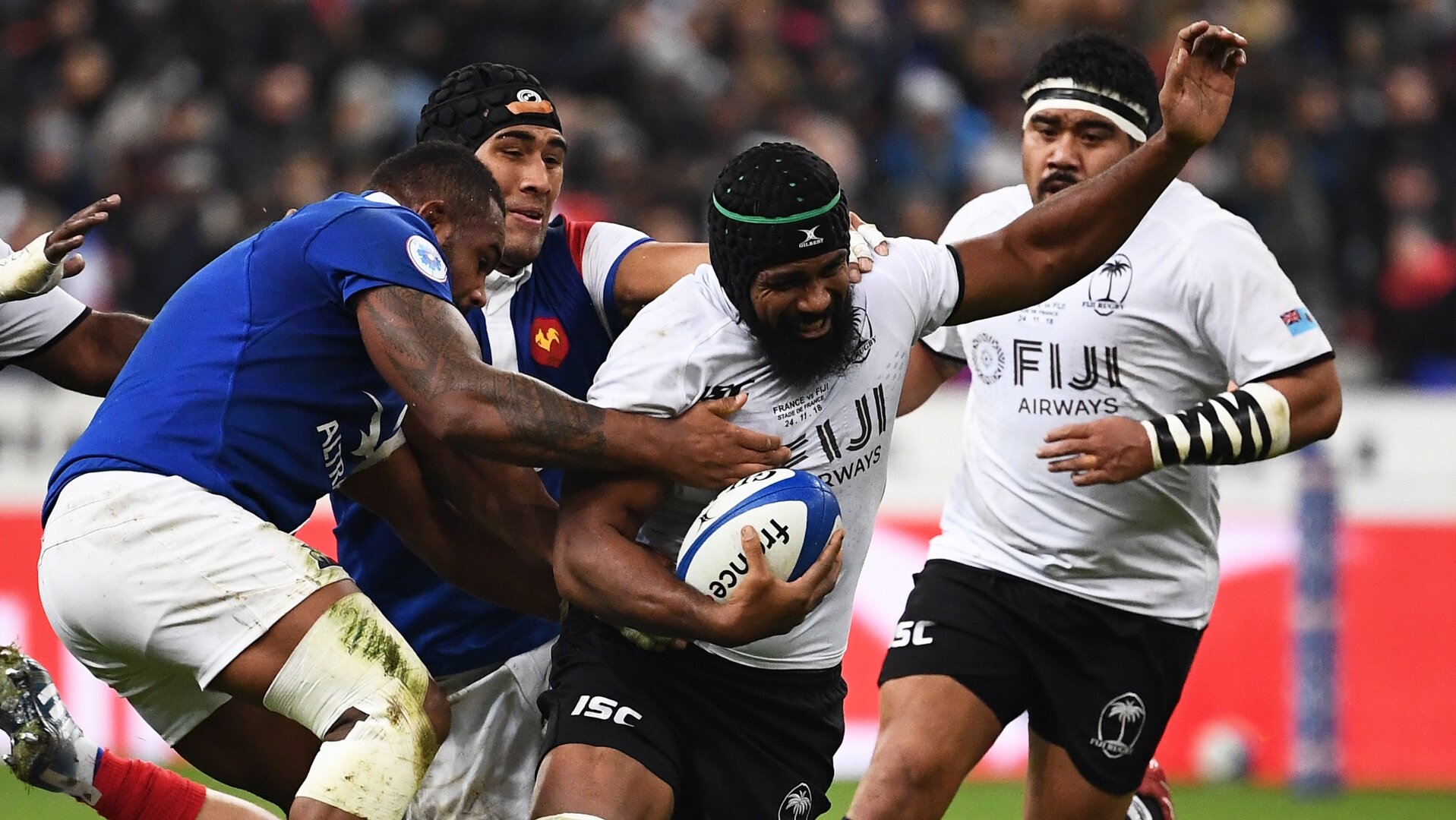The stats that highlight how really coveted Fijians players are by elite European clubs

Fiji’s World Cup squad selection has forcibly illustrated yet again how the Pacific Island nation heavily relies on overseas clubs to enable their players making a living in rugby.
Strides have been made in bolstering the game locally to better help harness potential talent, the Drua being the vehicle showcasing what is being produced.
However, the fact remains that without a fully-fledged Super Rugby franchise operation operating out of the islands, the sight of their rich seam of talent emigrating to play overseas will never be stemmed.
What their latest RWC squad highlights – it numbers 32 with one player still to be omitted before they get to the finals in Japan – is how Fijian players are now massively coveted by clubs in the major European leagues.
A whopping 21 of them are starring at the top level in France, England and Scotland – a dozen players are with French Top 14 clubs, seven more with English Premiership sides, while two others play with Scottish clubs in the PRO14.
?? |SQUAD ANNOUNCEMENT|
Fiji Airways Flying Fijians Head Coach John McKee named a powerful 32 RWC squad.
RWC Squad ????https://t.co/4Lhy8MqSCa— Fiji Rugby Union (@fijirugby) August 16, 2019
The remainder of the squad consists of four players from the English Championship and seven based locally in Fiji, one of whom, Frank Lomani, will be off to the Super Rugby Rebels after the finals.
A comparison with Fiji’s 2011 World Cup squad showcases the impressive reputation Fijians have built as – unlike eight years ago – they are heading to the 2019 finals with so many more players playing at elite club level.
Back in 2011, their 30-man squad for the finals in New Zealand consisted of players playing in a myriad of different places below elite club level.
Fiji head coach John McKee has named a strong squad for next month's World Cup in Japan.https://t.co/TAFG17zw9s
— RugbyPass (@RugbyPass) August 16, 2019
Six were attached to the Top 14, another four to the Premiership, two to PRO12 and one in Super Rugby with an Australian franchise.
Below that, though, you had six players playing at amateur level in Fiji, three players in France’s Pro D2, three in New Zealand’s grassroots, one in NZ NPC, one in Australian grassroots, one in the English Championship, one in Italian grassroots and one other who was unattached at the time of the finals.
The interim career path of current Fiji captain Dominiko Waqaniburotu demonstrates how much they have come on. At New Zealand 2011, Waqaniburotu was a 25-year-old operating out of the Hamilton-based Fraser Tech.
Now he is a seasoned professional and a prime component of the team build by Jeremy Davidson at Brive, the up-and-coming French Top 14 club.
Cruelly, this figure of Fijians RWC squad players at elite clubs could have even been higher but for Clermont’s Aliverti Raka opting to make a debut this weekend for France just weeks after Crusaders’ Sevu Reece started for the All Blacks and the Rebels’ Isi Naisarani broke through with Australia.
All three were born in Fiji but have now been lost to other Test nations.
FIJI’S 2019 RWC SQUAD
12 France Top 14
7 English Premiership
7 Fiji based
4 English Championship
2 PRO14
FIJI’S 2011 RWC SQUAD
6 France Top 14
6 Fiji based
4 English Premiership
3 France Pro D2
3 NZ grassroots
2 PRO12
1 Australia Super Rugby
1 Australian grassroots
1 NZ NPC
1 English Championship
1 Italian grassroots
1 Unattached
WATCH: Nadolo, the RugbyPass documentary on the life and time of the legendary Nemani Nadolo














































































